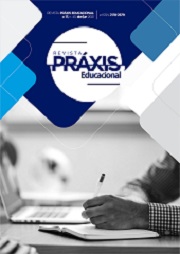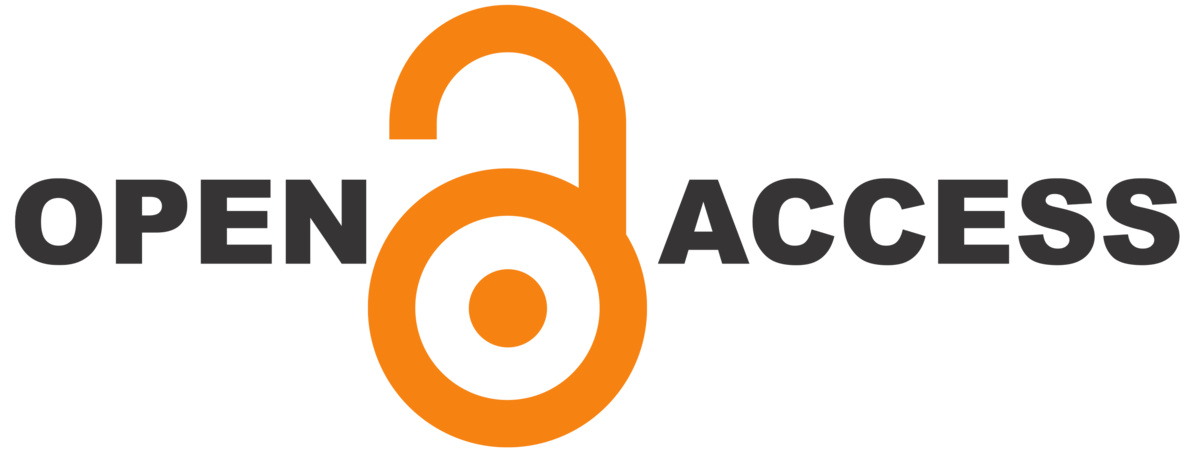Arithmetic subtest: student performance with indications of discalculia of development
DOI:
https://doi.org/10.22481/praxisedu.v17i45.7207Keywords:
Developmental Dyscalculia; Mathematical skills; Psychopedagogical interventions.Abstract
This article presents part of the results from a Master's research in Science and Mathematics Education on Developmental Dyscalculia, in particular, about the performance of students with signs of this disorder in the Arithmetic Subtest (STEIN, 1994), which was used as one of the instruments of psychopedagogical assessment. The objective is to analyze the evolution of the development of the mathematical skills of these students, after carrying out psychopedagogical interventions. The research took place in three moments: in the first, 11 students aged between 9 and 12 years old participated in the psychopedagogical assessment, among them, the Arithmetic Subtest; then they received ten intervention sessions; finally, they were reassessed. The analysis of the results obtained was based on the test correction score. In order to verify advances in student performance, a qualitative and quantitative analysis is presented. In relation to data analysis, student performance, Content Analysis - AC was chosen, considering the five steps defined by Moraes (1999): preparation; unitarization; categorization; description; and interpretation. From the analysis of the units of meaning, 12 initial categories emerged, which were grouped into a final category: Developmental Dyscalculia - DD. After the period of psychopedagogical interventions, based on the use of specific games according to the skills that were out of step, it appears that the students showed advances in reassessment, in relation to the operations of addition, subtraction, multiplication and division.
Downloads
References
DSM-5. Manual diagnóstico e estatístico de transtornos mentais. 5. ed. Porto Alegre: Artes Médicas, 2014.
FONSECA, V. Abordagem psicopedagógica das dificuldades de aprendizagem. 2. ed. Lisboa: Âncora, 2000.
GIL, A. C. Como elaborar projetos de pesquisa. 5. ed. São Paulo: Atlas, 2002.
HAASE, V. G.; MOURA, R. J.; CHAGAS, P. P.; WOOD, G. Discalculia e Dislexia: Semelhanças Epidemiológica e Diversidade de Mecanismos Neurocognitivos. In: ALVES, L. M; MOUSINHO, R.; CAPELLINI, S. A. (Orgs). Dislexia: Novos temas, novas perspectivas, Publisher: Rio de Janeiro: Wak, 2011, p. 257-282.
HAASE, V. G.; COSTA, D. S.; MICHELLI, L. R.; OLIVEIRA, L. F. S.; WOOD, G. O estatuto nosológico da discalculia do desenvolvimento. In: CAPOVILLA, F. C. (Org). Transtornos de aprendizagem 2: Da análise laboratorial e da reabilitação clínica para as políticas públicas de prevenção pela via da educação, Memnon Edições Científicas: São Paulo, 2011, p. 139-144.
ISLEY, P. Organização Mundial de Saúde - Classificação Estatística Internacional de Doenças e Problemas Relacionados à Saúde. 2015. Disponível em: <http://www.datasus.gov.br/cid10/V2008/cid10.htm>. Acesso em 19 de maio de 2015.
KOSC, L. Developmentol Dyscalculia. Journal of Learning Disabilities can be found at, v. 7, n. 3, p.163-177, marc. 1974.
KNIJNIK, L. F.; GIACOMONI, C.; STEIN, L. M. Teste de Desempenho Escolar: um estudo de levantamento. Psico-USF, vol. 18, n. 3, Itatiba, p. 407-416, set./dez. 2013.
LARA, I. C. M. Ensino inadequado de Matemática. Revista Ciências e Letras, n. 35, p. 137-152, mar./jul. 2004.
MOOJEN, S.; COSTA, A. C. Semiologia psicopedagógica. In: ROTTA, N. T.; OHLWEILER, L., RIESCO, R. S. (Orgs). Transtornos da aprendizagem: Abordagem neurobiológica e multidisciplinar. São Paulo: Artes Médicas, 2006. p. 103-112.
MORAES, R. Análise de Conteúdo: limites e possibilidades. In: ENGERS, M. E. A. (Org). Paradigmas e metodologias de pesquisa em educação. Porto Alegre, EDIPUCRS, 1994.
____. Análise de Conteúdo. Educação-PUCRS, Porto Alegre, ano XXII (37): 7-32, mar. 1999.
OHLWEILER, L. Introdução. In: ROTTA, N. T.; OHLWEILER, L., RIESCO, R. S. (Orgs). Transtornos da aprendizagem: Abordagem neurobiológica e multidisciplinar. São Paulo: Artes Médicas, 2006. p. 127-130.
RELVAS, M. P. Neurociências e transtornos de aprendizagem: as múltiplas eficiências para uma Educação Inclusiva. Rio de Janeiro: Wak, 2015.
STEIN, L. M. TDE: Teste de Desempenho Escolar: Manual para aplicação e interpretação. São Paulo: Casa do Psicólogo, 1994.
VIEIRA, E. Transtornos na aprendizagem da matemática: Número e discalculia. Revista Ciências e Letras, n. 35, p. 109-120, mar./jul. 2004.
Downloads
Published
How to Cite
Issue
Section
License
Copyright (c) 2021 Práxis Educacional

This work is licensed under a Creative Commons Attribution-ShareAlike 4.0 International License.
Você é livre para:
Compartilhar - copia e redistribui o material em qualquer meio ou formato; Adapte - remixe, transforme e construa a partir do material para qualquer propósito, mesmo comercialmente. Esta licença é aceitável para Obras Culturais Livres. O licenciante não pode revogar essas liberdades, desde que você siga os termos da licença.
Sob os seguintes termos:
Atribuição - você deve dar o crédito apropriado, fornecer um link para a licença e indicar se alguma alteração foi feita. Você pode fazer isso de qualquer maneira razoável, mas não de uma forma que sugira que você ou seu uso seja aprovado pelo licenciante.
Não há restrições adicionais - Você não pode aplicar termos legais ou medidas tecnológicas que restrinjam legalmente outros para fazer qualquer uso permitido pela licença.












